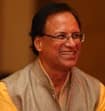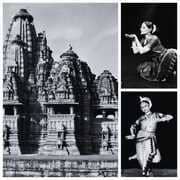श्री जगत सिंह बिष्ट
(Master Teacher: Happiness & Well-Being, Laughter Yoga Master Trainer, Author, Blogger, Educator, and Speaker.)
(ई-अभिव्यक्ति के “दस्तावेज़” श्रृंखला के माध्यम से पुरानी अमूल्य और ऐतिहासिक यादें सहेजने का प्रयास है। श्री जगत सिंह बिष्ट जी (Master Teacher: Happiness & Well-Being, Laughter Yoga Master Trainer, Author, Blogger, Educator, and Speaker) के शब्दों में “वर्तमान तो किसी न किसी रूप में इंटरनेट पर दर्ज हो रहा है। लेकिन कुछ पहले की बातें, माता पिता, दादा दादी, नाना नानी, उनके जीवनकाल से जुड़ी बातें धीमे धीमे लुप्त और विस्मृत होती जा रही हैं। इनका दस्तावेज़ समय रहते तैयार करने का दायित्व हमारा है। हमारी पीढ़ी यह कर सकती है। फिर किसी को कुछ पता नहीं होगा। सब कुछ भूल जाएंगे।”
दस्तावेज़ में ऐसी ऐतिहासिक दास्तानों को स्थान देने में आप सभी का सहयोग अपेक्षित है। इस शृंखला की अगली कड़ी में प्रस्तुत है श्री जगत सिंह बिष्ट जी का एक ऐतिहासिक दस्तावेज़ “खजुराहो नृत्य उत्सव/KHAJURAHO DANCE FESTIVAL“।)
☆ दस्तावेज़ # 24 – खजुराहो नृत्य उत्सव ☆ श्री जगत सिंह बिष्ट ☆
कुछ स्मृतियाँ ओस की बूंदों की तरह होती हैं — चुपचाप मन के किसी कोने में झिलमिलाती रहती हैं, जब समय बहुत दूर निकल चुका होता है। वर्ष था 1986। मेरी पदस्थी पन्ना में थी — वह नगर जो अपने हीरों के लिए प्रसिद्ध है, जहां लोग पूरी ज़िंदगी बिता देते हैं धरती के नीचे कुछ चमकते कणों की तलाश में, पर जिनके हिस्से वह आता है, वे वाक़ई किस्मत वाले होते हैं। लेकिन उस वसंत ऋतु में, मेरी पत्नी और मैंने एक अलग ही किस्म का हीरा खोजा — जो न मिट्टी में था, न आकाश में, बल्कि खजुराहो की खुली हवा, मंदिरों की पृष्ठभूमि और नृत्य की थापों में दमक रहा था।
हम दोपहिया वाहन पर निकले थे — पन्ना से खजुराहो की ओर, हवा हमारे चेहरे को सहला रही थी और मन में एक अजीब सी उत्सुकता थी। रास्ते में मड़ला में — जो आज पन्ना नेशनल पार्क का प्रवेश द्वार है — एक ढाबे पर रुके। ढाबे के मालिक ने चाय परोसी और बड़ी नम्रता से बताया कि इलाके में एक बाघ घूम रहा है, और इस रास्ते पर दोपहिया वाहन से जाना सुरक्षित नहीं है। हम मुस्कुरा दिए — थोड़े चिंतित, पर ज्यादा रोमांचित। जैसे जंगल ने हमारी यात्रा को एक रहस्यमयी प्रस्तावना दे दी हो।
खजुराहो — मध्य प्रदेश के छतरपुर ज़िले का वह नगर, जहां पत्थर भी कविताएं कहते हैं। हिंदू और जैन मंदिरों का यह समूह, जो अब विश्व धरोहर घोषित हो चुका है, उस वर्ष पहली बार यूनेस्को की सूची में शामिल हुआ था। और उसी वर्ष मार्च में, इन मंदिरों की गोद में आयोजित खजुराहो नृत्य महोत्सव का आंनद लेने हम पहुंचे। यह एक ऐसा उत्सव था जहां दुनिया भर के शास्त्रीय नृत्यकला के साधक इकट्ठा हुए थे।
यह मेरे सहकर्मी राम विलास कटारे की कृपा थी, जो उस समय खजुराहो में ही पदस्थ थे, कि हमें वहां तीन दिन रुकने और महोत्सव में भाग लेने का सौभाग्य मिला। राम विलास ने बाद में बैंक की नौकरी छोड़कर ग्वालियर में उद्योग की दुनिया में अपनी पहचान बनाई, लेकिन उन दिनों हम सब बस कला प्रेमी थे — मंच के सामने बैठे, मंत्रमुग्ध दर्शक।
महोत्सव की प्रथम संध्या में मंच पर थीं — संजुक्ता पाणिग्रही। ओडिसी नृत्य की यह नृत्यांगना अपने संगीतकार पति के साथ मंच पर आईं। उनकी प्रस्तुति जादुई थी — नृत्य और अभिनय का ऐसा संगम कि हर भाव, हर मुद्रा, हर अभिनय एक प्रार्थना लगने लगे। गीत गोविंद की भक्ति से लेकर सूरदास की पदावली, तुलसी के चौपाई, विद्यापति की सौंदर्यरस और रवीन्द्रनाथ ठाकुर की सूक्ष्मता — सब कुछ जैसे सजीव हो उठा। संजुक्ता जी की भंगिमा में कहीं लोकनाट्य ‘जात्रा’ की झलक थी, तो कहीं आत्मा की पुकार।
दूसरे दिन सुबह दूरदर्शन की टीम ने मंदिर परिसर में पिछली रात की प्रस्तुति का पुनः फिल्मांकन किया। संजुक्ता जी का साक्षात्कार लिया गया, जिसमें साधना श्रीवास्तव ने ओडिसी नृत्य के भाव और सौंदर्य को सुलझे हुए प्रश्नों से उद्घाटित किया। हम सौभाग्यशाली थे कि इतने निकट से इस अनुभव के साक्षी बन पाए।
दोपहर को होटल चंदेला में भोजन का आयोजन था। वहां परोसे गए व्यंजनों की सुगंध — मसालों की वह गंध — आज भी स्मृति में बसी हुई है। स्वाद, जो सिर्फ जीभ पर नहीं, मन में बस गया।
दूसरे दिन शाम को आधुनिक नृत्य की एक नई लहर देखने को मिली — प्रसिद्ध भरतनाट्यम नृत्यांगना चंद्रलेखा द्वारा निर्देशित ‘नवग्रह’। भरतनाट्यम, कलारिपयट्टु और योग की त्रिवेणी से रचा गया यह प्रदर्शन केवल दृश्य नहीं, विचार का भी अनुभव था। उन्होंने नृत्य की एक नई भाषा रची — ऐसी जो परंपरा में जड़ें रखते हुए भी समकालीनता की बात करती थी।
तीसरी संध्या — मलविका सरुक्कई का भरतनाट्यम प्रदर्शन। उन्होंने प्रस्तुत किया ‘रास’ — वह क्षण जब गोपियाँ कृष्ण की बांसुरी सुनकर अपने भीतर की खोज में निकलती हैं। यह यात्रा केवल भौगोलिक नहीं, आत्मिक थी। एक नई अनुभूति की तलाश। मलविका की प्रस्तुति में वह झलक थी — वह क्षणिक जादू — जिसे पकड़ना कठिन है, पर महसूस करना सरल।
इन तीन दिनों ने हमें केवल नृत्य नहीं, जीवन का दर्शन दिया। मंदिरों की छाया, चांदनी की आभा, नूपुरों की झंकार, और कलाकारों की साधना — सब कुछ मिलकर एक ऐसी ऊर्जा बना रहे थे जो मन को स्थिर और आत्मा को उद्दीप्त कर देती थी।
नौकरी की दुनिया में जब जीवन यांत्रिक हो उठता है, तब कला वह खिड़की बनती है जिससे रोशनी भीतर आती है। नृत्य, संगीत, साहित्य, रंगमंच — इन सबका सान्निध्य मेरे जीवन की निधि रहा है। वे क्षण जब कलाकार और दर्शक दोनों एक ऊर्जा में विलीन हो जाते हैं — वे पल जैसे आकाश में उगे तारे — दुर्लभ, दिव्य और अमर।
खजुराहो नृत्य महोत्सव उन्हीं दिव्य पलों का संधान है। एक संवाद — नर्तक और देवता के बीच। और आज भी, जब आँखें मूंदता हूँ, तो वह स्वर, वह छवि, वह रस — सब लौट आता है। वह अनुभव, जिसमें कलाकार अपने अस्तित्व से परे जाकर उन तारों की छाया में नृत्य करता है — और उसी में विलीन हो जाता है।
♥♥♥♥
☆ KHAJURAHO DANCE FESTIVAL ☆
Some memories, like dew on a lotus petal, glisten quietly in the heart long after time has moved on. The year was 1986. I was posted in Panna, a quiet town known for its diamond mines where people spend lifetimes in pursuit of something that gleams only for the chosen few. But that spring, my wife and I discovered a different kind of gem — one that shimmered not beneath the earth but under the open skies of Khajuraho, set against the sacred silhouettes of temples and the rhythm of anklets on stone.
We had set out one breezy afternoon, the wind brushing against our faces as our two-wheeler cruised through the ghat section between Panna and Khajuraho. Somewhere near Madla — now the gateway to the Panna National Park — we halted at a modest roadside dhaba. The dhaba owner, a wiry old man with kindness in his eyes, poured us steaming cups of tea and cautioned us in hushed tones: a tiger was said to be prowling nearby. We smiled nervously, half-amused, half-intrigued — the wilderness lending a thrilling prelude to what lay ahead.
Khajuraho, in the Chhatarpur district of Madhya Pradesh, is a town where stone whispers stories — of gods and mortals, of yearning and transcendence. In March that year, it became the stage for the Khajuraho Dance Festival, where artists from across India gathered to breathe life into ancient dance forms under the timeless gaze of sculpted deities. The festival coincided with a significant moment in history: the temples had just been inscribed on the UNESCO World Heritage list, a fitting honour for the marvels that would form the sacred backdrop to the celebration of classical Indian dance.
It was thanks to my affable colleague Ram Vilas Katare, then posted at Khajuraho, that we were able to attend. He arranged our stay and ensured we had the best seats for the opening performances. Ram Vilas would later go on to leave banking and find his fortune in industry, but that evening, we sat side by side as mere rasiks — lovers of art — in quiet reverence.
The festival began with a performance that remains etched in golden memory — Sanjukta Panigrahi, the reigning queen of Odissi, took the stage. With her was her musician husband, who carried the music like a prayer. Sanjukta’s dance was a revelation — a confluence of nritta and abhinaya, where each movement became an invocation, each expression a verse. From Jayadeva’s Gita Govinda to Surdas’s padavali, from the rustic poetry of Vidyapati to the soulfulness of Tagore, she traversed the spiritual spectrum with grace that was almost otherworldly. The effect was so powerful that even the intricate carvings behind her seemed to pause and listen.
Doordarshan was there too, recording the performances. The next morning, we found ourselves privileged spectators at the temple complex where the shoot continued. The gracious Sadhna Shrivastava interviewed Sanjukta Panigrahi, her questions drawing out the essence of Odissi, while we watched the unfolding of art at close quarters. It felt less like an interview and more like a satsang — a sacred communion.
The afternoons were gentle, the sun warm, the heart warmer. We lunched at Hotel Chandela, where the grilled delicacies teased the senses. Even today, the memory of those spices — smoky, tangy, aromatic — is enough to make the mouth water.
Day two brought with it the bold strokes of modernity — a performance by the inimitable Chandralekha. Her Navagraha was unlike anything we had seen. Using Bharatanatyam, Kalaripayattu and Yoga, she gave us a new vocabulary of movement. It was not merely a dance; it was an introspective journey, a cosmic choreography that expanded the definition of tradition.
The final evening of our stay introduced us to Malavika Sarukkai and her sublime Bharatanatyam recital. Her piece, Raas, was a poetic meditation — the gopis enchanted by Krishna’s flute, venturing into the unknown woods and, in the process, awakening to their own divine selves. There was a certain hush in the air as she danced, a silence not of absence but of awe. In that moment, it felt as though time itself had stepped aside to watch.
These three days in Khajuraho gave us not just performances, but moments of transcendence. As the temple stones glowed in the evening light and the air reverberated with the taal and the thumri, it became clear — this was no ordinary festival. It was sadhana in motion, a spiritual offering wrapped in rhythm, gesture and song.
Over the years, I have been fortunate to meet and witness the brilliance of many great artists — from literature to theatre, from painting to sculpture. In the humdrum of a job, it is these windows into beauty that give breath to the soul. The arts, for me, have been more than pastimes. They are life’s quiet conversations with the sublime, a nourishment of the spirit.
The Khajuraho Dance Festival was, and remains, one such conversation — a dialogue between the eternal and the ephemeral, between the dancer and the divine. And sometimes, when I close my eyes, I can still hear the tinkle of anklets, still see the moonlight casting shadows on the sandstone, still feel that inexplicable joy of watching an artist step into the starlight — and become one with it.
♥♥♥♥
© Jagat Singh Bisht
Laughter Yoga Master Trainer
A Pathway to Authentic Happiness, Well-Being & A Fulfilling Life! We teach skills to lead a healthy, happy and meaningful life.
≈संपादक – श्री हेमन्त बावनकर/सम्पादक मंडल (हिन्दी) – श्री विवेक रंजन श्रीवास्तव ‘विनम्र’/श्री जय प्रकाश पाण्डेय ≈

















